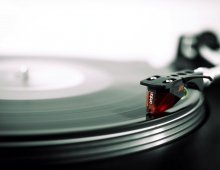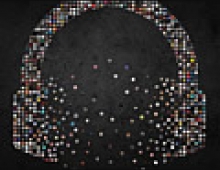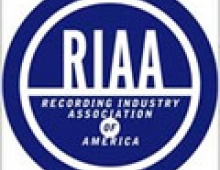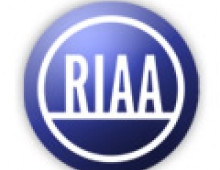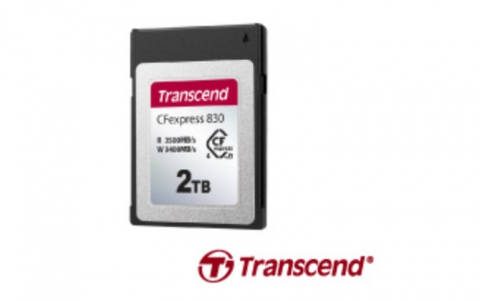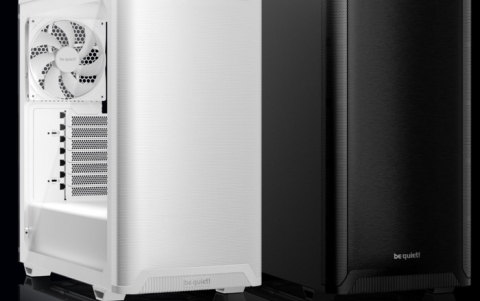
The RIAA runs its lawsuits as a volume business
Those odds seem pretty good, until it happens to you.
"...This past October, my former Internet provider alerted me that they had been subpoenaed by the Recording Industry Association of America (RIAA) on behalf of its member labels with the demand to turn over the names and addresses of 100 "John Does" that the RIAA had detected sharing music. The RIAA is now appealing an 8th Circuit Court decision, which ruled that Internet services providers don't have to reveal names of customers who have not yet been sued.
"We surf peer-to-peer music networks," Jonathan Lamy of the RIAA communications office says. "We look for people who are offering songs, and if they have a substantial number of songs, we take note of all the songs they are offering for distribution and their IP addresses." Suits are filed against the anonymous file-sharers in bulk and then the RIAA goes to court to get names and addresses from ISPs. From there, the RIAA offers downloaders a chance to settle the complaint, or they can go to court and fight it.
For me, the experience of settling with the RIAA was almost painless�except for the thousands I agreed to pay. Dragging my "shared" folder to the trash icon, promising not to download anymore, and acknowledging that illegal downloading is wrongful were easy enough. I happened to know an intellectual-property lawyer who agreed to handle the negotiations pro bono. He was the one who called the RIAA settlement center number and spoke not to a lawyer, but to a staffer empowered and trained to negotiate. "It feels like they're doing a volume business," my lawyer told me.
Lamy says that of the 8,400 suits filed (8,100 of which were filed against John Does) there have been about 1,700 settlements to date. The process, from detection to settlement, can take months, but its critics believe the RIAA moves far too quickly. Annalee Newitz, policy analyst for the civil liberties group the Electronic Frontier Foundation, says the practice of suing not just a single anonymous person but dozens at a time is called "spamigation." "That's one of the slimier things that entertainment companies are doing," she says, because mass lawsuits allow "companies to sue hundreds of people for the same cost as suing only one. So instead of respecting the defendants' due process rights and suing them individually, the companies are able to cut down on court fees and sue them as a group. This makes it much easier for companies to sue people willy-nilly, even if they aren't sure that the person being sued is in fact infringing, because it doesn't cost them any extra money to add another name to their suit." The EFF has helped compel entertainment companies to file individual rather than group lawsuits in Northern California, and has also worked with other John Does to have the RIAA and other entertainment company cases moved to their home states.
Most settlements top $3,000, and according to Newitz, some can go as high as $7,000. The RIAA wouldn't confirm these figures, but it didn't dispute them either. Lamy says that of all the John Doe cases so far, "none have come to trial." And indeed, it is hard to imagine going to trial doing much good for a hypothetical Doe, since millions of users are illegally downloading and sharing music. Frequent downloader Cecilia Gonzalez didn't settle against the RIAA, and on January 7, she received only a summary judgment in a U.S. District Court. Throwing out Gonzalez's claims that she was simply "sampling" songs to see if she wished to buy them and that she was an "innocent infringer" unaware that she was violating record company copyrights, the court ordered her to pay damages of $750 for each of 30 songs she was found to have downloaded illegally, for a total of $22,500. That's more than the poverty line income for a family of five in 2004 ($22,030), but it is worth pointing out that damages of $750 per infringement is the minimum the RIAA could have received, and that the original complaint filed against Gonzalez claimed that she had nearly 2,500 downloaded songs. Damage payments could potentially be much higher. Finally, courts have found that the "cumulative effect" of downloaders makes individual downloaders liable for damages, even if their personal downloading has only a marginal impact, so even penny-ante downloaders are potentially at risk.
The RIAA is not eager to go to trial, according to Lamy. "We would prefer to settle sooner rather than later. . . . We make numerous attempts to engage downloaders throughout the process." The RIAA is even eager to adopt P2P technology, he says. "Record companies are aggressively licensing digital music," and even Napster founder Shawn Fanning has come in from the cold with SNOCAP, a clearinghouse of properly licensed digital music. The problem is that legal digital music firms have to compete against P2P outfits with "parasitical business models." It's cheaper to distribute stolen free stuff than it is to pay up front, after all.
For all the furor over the suits, they may not be having that much effect on the amount of illegal downloading. Newitz says that "recent reports indicate that file sharing is bigger than ever�and so are the record industry's profits. As a result, it's hard to see the suits as anything other than a wrongheaded attempt by the old media industry to push upstart innovators out of the marketplace rather than working with them." The RIAA points to the rise in legal downloading to show that its strategy is working. In a December press release, RIAA president Cary Sherman said, "With legal online retailers still forced to compete against illegal free networks, the playing field remains decidedly unbalanced. . . . That's why continued enforcement against individuals stealing and distributing music illegally is essential, as is holding accountable the businesses that intentionally promote and profit from this theft."
The EFF has its own suggested model for legal downloading, called "voluntary collective licensing." P2P users would pay a flat rate, say five dollars a month, for use of the networks, and that money would be passed on to ASCAP or some other suitable association representing artists and producers. "This is exactly how radio works, except that radio stations pay the licensing fees rather than listeners," Newitz says. "It would be easy to figure out how much to pay artists using a VCL for P2P technologies, because it's simple to use current software to track how many times a song is downloaded"�a method that would make such a scheme even more precise than the estimates radio uses. But the RIAA isn't going for it. "We do oppose compulsory licensing schemes that would set a specific price" for a license to download, says Lamy. SNOCAP and other pay-for-play systems like iTunes is what the industry supports.
And downloading? Well, I'm done with it now, except for legal amazon.com freebies, but even my close friends haven't been scared off. One scoffed at my settlement, and said that if she were sued, she'd fight the RIAA in court. For her, downloading is "civil disobedience" in protest against the legal digital music systems that just don't have all the music she wants. Of course it's easy to strike a rebel pose like that . . . until you become just another John Doe..."
"We surf peer-to-peer music networks," Jonathan Lamy of the RIAA communications office says. "We look for people who are offering songs, and if they have a substantial number of songs, we take note of all the songs they are offering for distribution and their IP addresses." Suits are filed against the anonymous file-sharers in bulk and then the RIAA goes to court to get names and addresses from ISPs. From there, the RIAA offers downloaders a chance to settle the complaint, or they can go to court and fight it.
For me, the experience of settling with the RIAA was almost painless�except for the thousands I agreed to pay. Dragging my "shared" folder to the trash icon, promising not to download anymore, and acknowledging that illegal downloading is wrongful were easy enough. I happened to know an intellectual-property lawyer who agreed to handle the negotiations pro bono. He was the one who called the RIAA settlement center number and spoke not to a lawyer, but to a staffer empowered and trained to negotiate. "It feels like they're doing a volume business," my lawyer told me.
Lamy says that of the 8,400 suits filed (8,100 of which were filed against John Does) there have been about 1,700 settlements to date. The process, from detection to settlement, can take months, but its critics believe the RIAA moves far too quickly. Annalee Newitz, policy analyst for the civil liberties group the Electronic Frontier Foundation, says the practice of suing not just a single anonymous person but dozens at a time is called "spamigation." "That's one of the slimier things that entertainment companies are doing," she says, because mass lawsuits allow "companies to sue hundreds of people for the same cost as suing only one. So instead of respecting the defendants' due process rights and suing them individually, the companies are able to cut down on court fees and sue them as a group. This makes it much easier for companies to sue people willy-nilly, even if they aren't sure that the person being sued is in fact infringing, because it doesn't cost them any extra money to add another name to their suit." The EFF has helped compel entertainment companies to file individual rather than group lawsuits in Northern California, and has also worked with other John Does to have the RIAA and other entertainment company cases moved to their home states.
Most settlements top $3,000, and according to Newitz, some can go as high as $7,000. The RIAA wouldn't confirm these figures, but it didn't dispute them either. Lamy says that of all the John Doe cases so far, "none have come to trial." And indeed, it is hard to imagine going to trial doing much good for a hypothetical Doe, since millions of users are illegally downloading and sharing music. Frequent downloader Cecilia Gonzalez didn't settle against the RIAA, and on January 7, she received only a summary judgment in a U.S. District Court. Throwing out Gonzalez's claims that she was simply "sampling" songs to see if she wished to buy them and that she was an "innocent infringer" unaware that she was violating record company copyrights, the court ordered her to pay damages of $750 for each of 30 songs she was found to have downloaded illegally, for a total of $22,500. That's more than the poverty line income for a family of five in 2004 ($22,030), but it is worth pointing out that damages of $750 per infringement is the minimum the RIAA could have received, and that the original complaint filed against Gonzalez claimed that she had nearly 2,500 downloaded songs. Damage payments could potentially be much higher. Finally, courts have found that the "cumulative effect" of downloaders makes individual downloaders liable for damages, even if their personal downloading has only a marginal impact, so even penny-ante downloaders are potentially at risk.
The RIAA is not eager to go to trial, according to Lamy. "We would prefer to settle sooner rather than later. . . . We make numerous attempts to engage downloaders throughout the process." The RIAA is even eager to adopt P2P technology, he says. "Record companies are aggressively licensing digital music," and even Napster founder Shawn Fanning has come in from the cold with SNOCAP, a clearinghouse of properly licensed digital music. The problem is that legal digital music firms have to compete against P2P outfits with "parasitical business models." It's cheaper to distribute stolen free stuff than it is to pay up front, after all.
For all the furor over the suits, they may not be having that much effect on the amount of illegal downloading. Newitz says that "recent reports indicate that file sharing is bigger than ever�and so are the record industry's profits. As a result, it's hard to see the suits as anything other than a wrongheaded attempt by the old media industry to push upstart innovators out of the marketplace rather than working with them." The RIAA points to the rise in legal downloading to show that its strategy is working. In a December press release, RIAA president Cary Sherman said, "With legal online retailers still forced to compete against illegal free networks, the playing field remains decidedly unbalanced. . . . That's why continued enforcement against individuals stealing and distributing music illegally is essential, as is holding accountable the businesses that intentionally promote and profit from this theft."
The EFF has its own suggested model for legal downloading, called "voluntary collective licensing." P2P users would pay a flat rate, say five dollars a month, for use of the networks, and that money would be passed on to ASCAP or some other suitable association representing artists and producers. "This is exactly how radio works, except that radio stations pay the licensing fees rather than listeners," Newitz says. "It would be easy to figure out how much to pay artists using a VCL for P2P technologies, because it's simple to use current software to track how many times a song is downloaded"�a method that would make such a scheme even more precise than the estimates radio uses. But the RIAA isn't going for it. "We do oppose compulsory licensing schemes that would set a specific price" for a license to download, says Lamy. SNOCAP and other pay-for-play systems like iTunes is what the industry supports.
And downloading? Well, I'm done with it now, except for legal amazon.com freebies, but even my close friends haven't been scared off. One scoffed at my settlement, and said that if she were sued, she'd fight the RIAA in court. For her, downloading is "civil disobedience" in protest against the legal digital music systems that just don't have all the music she wants. Of course it's easy to strike a rebel pose like that . . . until you become just another John Doe..."

